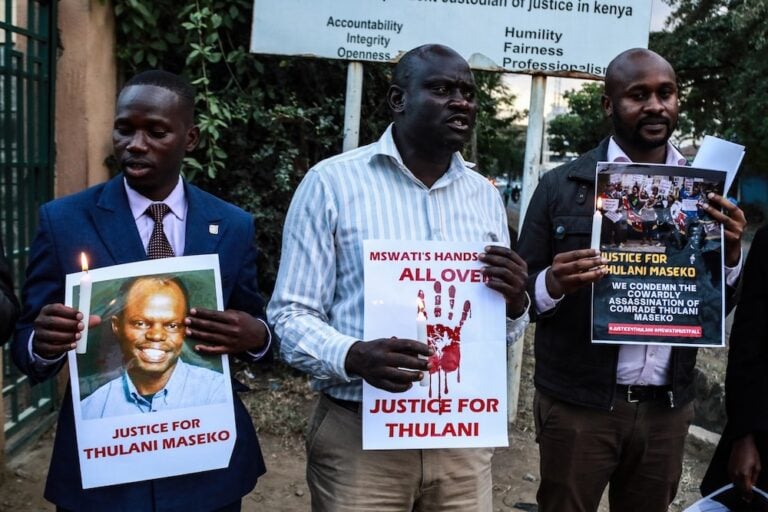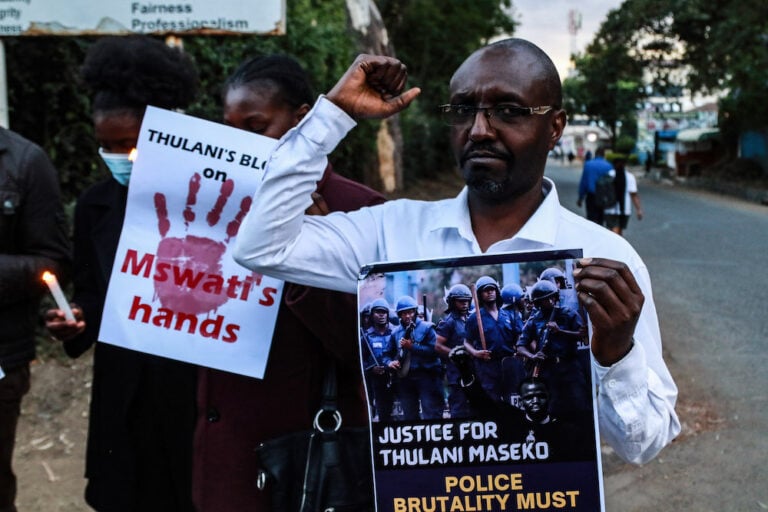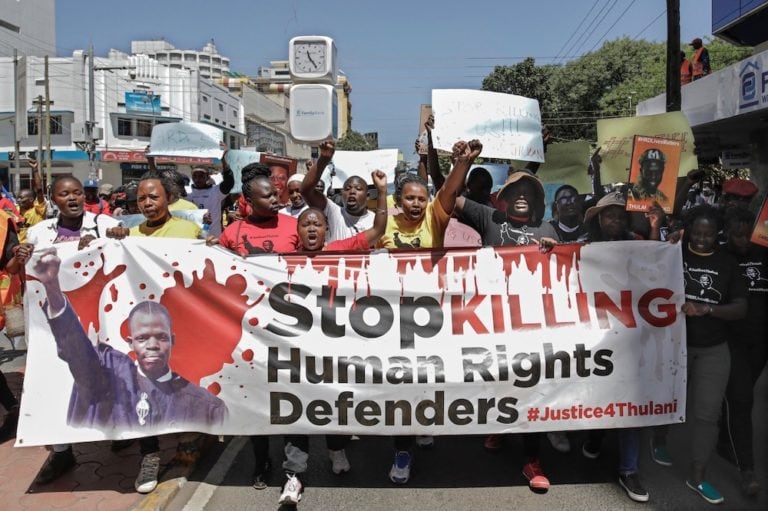(MISA/IFEX) – On 19 June 2007, a case in which the privately owned “Nation” magazine is being sued for E5 million (approx. US$ 750,000) by a Mbabane businessman for alleged defamation, resumed at the Swaziland High Court. However, the case could not proceed as “Nation” raised an objection around supplementary papers filed by the applicant, […]
(MISA/IFEX) – On 19 June 2007, a case in which the privately owned “Nation” magazine is being sued for E5 million (approx. US$ 750,000) by a Mbabane businessman for alleged defamation, resumed at the Swaziland High Court.
However, the case could not proceed as “Nation” raised an objection around supplementary papers filed by the applicant, businessman Kareem Ashraff. Lawyer Bob Sigwane, representing the magazine, objected that the matter should continue because they were served with the supplementary affidavit late.
“I have failed to study the papers within the short space of time that has been afforded to me by the plaintiff. It would be unfair that the matter proceeds today or even tomorrow as we have to deal with these issues,” lawyer Sigwane said.
He said there was no prejudice that would be suffered by applicant if the matter was postponed because this was a delay of their own making.
Advocate Dave Smith, representing Ashraff, agreed that the supplementary papers were submitted to the respondents only the previous day. He said the court had the discretion to permit utilization of the documents if satisfied that the late discovery of the documents would not prejudice the opposition.
The judge then reserved judgement on the objection by the “Nation” magazine.
Businessman Ashraff claims to have been defamed by an article published by the “Nation” in November 2005 claiming that the businessman’s company, Union Supplies, was “milking” the Swazi government. The company supplies goods to the Swaziland Defence Force.
The “Nation” based its article on a government report published by the Auditor General which accused a number of local companies, including that of Ashraff, of corruption resulting in government losing millions of Emalangeni through inflated invoices and other underhand methods.


